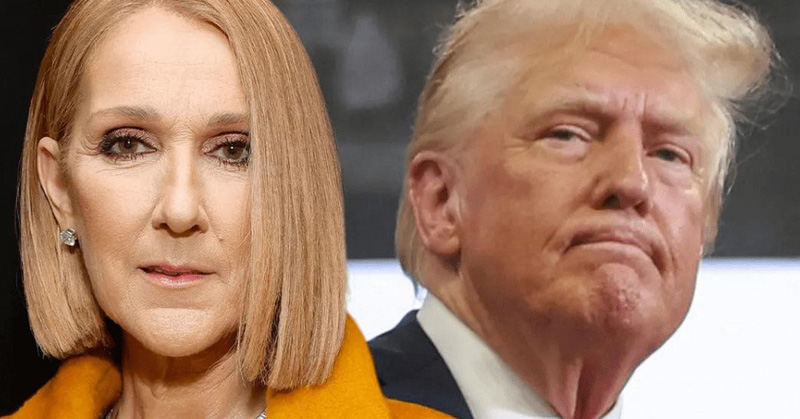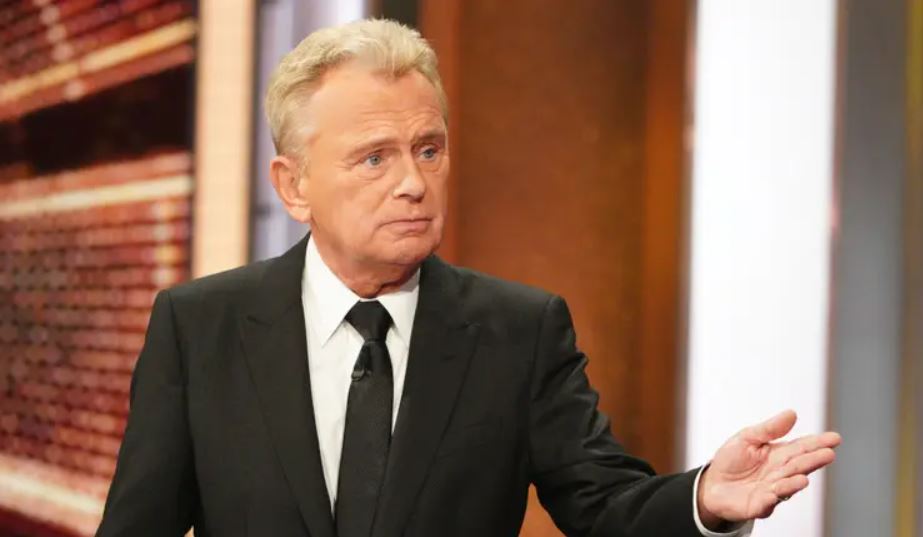In politics, where campaign speeches and rally soundtracks dominate the airwaves, one legendary voice has emerged to challenge the status quo. Celine Dion, the iconic singer-songwriter known for her powerful songs and commanding stage presence, has drawn a line in the sand, refusing to allow former President Donald Trump to use her music without permission.

It all started at a rally in Montana, where Donald Trump and his running mate, J.D. Vance, included an unexpected element in their pre-speech playlist: a video of Celine Dion performing the legendary theme song from the blockbuster film “Titanic,” called “My Heart Will Go On.” While some may have seen this as a nod to the singer’s continued appeal and the emotional intensity of her music, Celine Dion and her team saw it as a disregard for her artistic integrity and a violation of her intellectual property rights.

In a statement issued shortly after the rally, Dion’s team made it clear that Trump did not have authorization to use her music in his political campaign. They also asked the pointed question of why Trump chose that specific song in the first place. Dion’s response to the unauthorized use of her song was swift and unapologetic. She took a firm stance, declaring that she would not tolerate the use of her work for political purposes.
Dion stated that the use of “My Heart Will Go On” by Trump would be discontinued, sending a clear message that he had overstepped his boundaries. This courageous step not only showcased Dion’s unwavering commitment to protecting her artistic legacy but also highlighted the larger issue of politicians using copyrighted material without the creator’s permission.
Celine Dion’s protest against Trump’s unauthorized use of her music is part of a larger movement in politics, where celebrities and public figures are defending their rights and refusing to be exploited as political puppets. Artists, musicians, and Hollywood stars have increasingly spoken out against politicians and campaigns using their work. From the Rolling Stones demanding that Trump stop using their songs to Rihanna calling out the former president for playing her music at a rally, the message is clear: celebrities will not allow their work to be exploited for political gain.

This trend reflects a broader shift in the cultural landscape, blurring the lines between entertainment, fame, and politics. As the audience becomes more discerning and aware of power dynamics, the demand for authenticity and artistic integrity grows stronger.
Navigating the intersection of politics and pop culture can be a delicate and often controversial affair, as demonstrated by Celine Dion’s dispute with Donald Trump. Political candidates must strike a balance between respecting artists’ intellectual property rights and engaging with the broader cultural zeitgeist to connect with their constituents.
For high-profile artists like Dion, it is a challenge to express their creativity and protect their work from unauthorized exploitation while maintaining a healthy engagement with the political sphere. This delicate balancing act requires a deep understanding of copyright and intellectual property laws, as well as an acute awareness of the public’s changing sensibilities.
Celine Dion’s forceful stand against Donald Trump’s unauthorized use of her music has sent shockwaves through the political landscape, highlighting the importance of artists’ rights and the ability of celebrity voices to impact public discourse.

As we move forward, it will be interesting to see how other musicians, actors, and cultural influencers respond to similar attempts at political coercion. Will they follow Dion’s lead, using their platforms to assert creative autonomy and demand accountability from political figures? Or will some continue to succumb to the allure of exposure and potential political impact?
Ultimately, this drama serves as a reminder that the worlds of politics and pop culture are intertwined, with artistic expression, intellectual property, and civic involvement all interconnected. And as Celine Dion has shown, pulling on those threads has far-reaching consequences.





